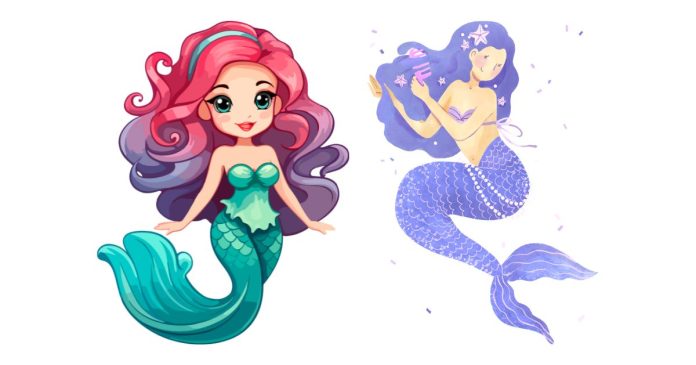Mermaids have long captured the imagination of people all over the world, from ancient myths to modern-day tales. With their half-human, half-fish appearance, they are one of the most enchanting creatures in folklore. But the question persists—do mermaids really exist? In this blog post, we will explore the origins of mermaid myths, evidence for their existence, and why they continue to fascinate us today.
The Origins of Mermaids in Mythology
The concept of mermaids is deeply rooted in mythology and folklore, dating back to ancient civilizations. Stories of mermaid-like creatures have been found in cultures across the globe, from ancient Assyria to Norse legends. Here are a few examples:
- Ancient Assyria: One of the earliest mentions of a mermaid-like figure comes from the myth of Atargatis, an Assyrian goddess who was said to transform into a fish. Over time, the tale evolved, and she was depicted as a woman with the tail of a fish, much like the mermaid we recognize today.
- Greek Mythology: The ancient Greeks were familiar with sea creatures, and their stories featured beings like the Sirens—half-bird, half-woman figures who lured sailors to their doom with their enchanting songs. Though not exactly mermaids, the concept of human-like creatures living in the sea influenced the development of mermaid myths.
- European Folklore: Mermaids became widely known in Europe during the Middle Ages. The famous legend of the Little Mermaid, popularized by Hans Christian Andersen, depicts a sea-dwelling creature who dreams of living on land. Similar stories of mermaids have been passed down through generations, cementing their place in European culture.
Is There Any Evidence for Mermaids?
Despite the widespread belief in mermaids throughout history, there is no conclusive scientific evidence to support their existence. Here are some common claims and what we know about them:
- Sightings and Folklore: Many mermaid sightings have been reported throughout history, particularly by sailors at sea. However, these sightings are often thought to be the result of mistaken identity, with creatures like manatees or dugongs—large marine mammals with features resembling a human torso—being mistaken for mermaids.
- The Fiji Mermaid: One of the most famous hoaxes was the so-called “Fiji Mermaid,” which was purported to be a real mermaid discovered in the 19th century. The mermaid was later revealed to be a combination of a monkey’s upper body and a fish’s tail, proving to be a fabricated creature.
- Modern-Day Claims: In modern times, there have been occasional reports of mermaid sightings, often fueled by sensational media and social media. However, no evidence has ever been found to prove these claims, and they are typically dismissed by experts as myths or hoaxes.
Why Do We Believe in Mermaids?
So, if there’s no evidence of mermaids, why do we continue to believe in them? There are several reasons:
- The Mystery of the Ocean: The vastness and unexplored nature of the ocean have always been a source of mystery. It’s easy to imagine that there are hidden creatures beneath the waves, and mermaids fit perfectly into the idea of undiscovered, magical beings living in the deep.
- Symbolism and Fantasy: Mermaids are often associated with themes of beauty, mystery, and the unknown. They represent the allure of the ocean, with its powerful and sometimes dangerous allure. They also symbolize the intersection of humanity and nature, embodying both the human desire to explore and the wildness of the natural world.
- Cultural Influence: Mermaids continue to be a popular theme in modern media, from films like The Little Mermaid to TV shows like H2O: Just Add Water. These depictions reinforce the idea of mermaids as magical, enchanting beings, making it easier for people to keep the myth alive in their imaginations.
While mermaids are an enduring part of folklore and culture, the reality is that there is no scientific evidence to suggest that these half-human, half-fish creatures actually exist. However, their popularity in myths, stories, and modern media speaks to the human fascination with the ocean’s mysteries and our desire for the magical and fantastical.
So, while mermaids may not be real in the literal sense, their legacy lives on in the stories we tell and the dreams we hold about the deep, mysterious sea.
Do you believe in mermaids or have you ever heard of a mermaid sighting? Share your thoughts in the comments below!


